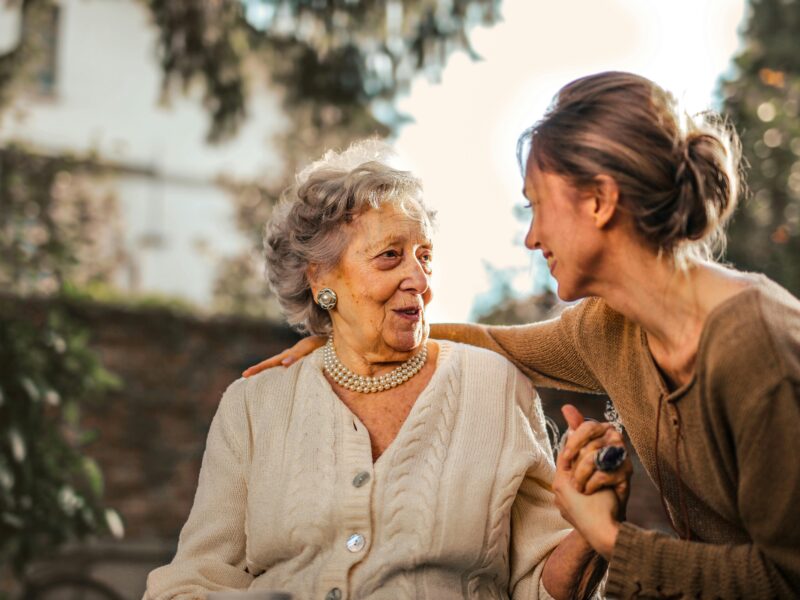In a society where the population of older adults is steadily increasing, the demand for elderly care has never been more critical. With the baby boomer generation entering their golden years, there’s a growing need for compassionate caregivers who can provide high-quality support. This demand presents a unique opportunity for individuals interested in making a difference in the lives of seniors while earning a substantial income. This blog post explores how caregivers, freelancers, and elderly care providers can earn between $50 to $100 an hour in the United States by offering essential services to the elderly.
The Growing Demand for Elderly Care in the U.S.
As the U.S. population ages, the number of seniors requiring care continues to rise. According to the U.S. Census Bureau, by 2030, all baby boomers will be over 65, making up about 20% of the population. This demographic shift is creating an urgent need for caregivers who can offer personalized support to elderly individuals who wish to age in place, maintain their independence, and enjoy a good quality of life.
The demand for elderly care services spans various settings, including home care, assisted living facilities, and nursing homes. Each setting presents unique challenges and opportunities for caregivers to make a significant impact on the lives of older adults. The ability to provide personalized, compassionate care has become increasingly valued in today’s world, making caregiving a rewarding and fulfilling profession.
In this context, the role of caregivers becomes crucial. These professionals not only address the physical needs of seniors but also offer companionship, emotional support, and assistance with daily activities. The growing need for this level of care highlights the importance of caregivers in society and underscores the potential for career growth in this field.
The Gig Economy and Elderly Care
With the rise of the gig economy, freelance caregivers play an increasingly vital role in filling the gap in elderly care services. The gig economy allows individuals to offer their services on a freelance basis, providing flexible and personalized care options for seniors. Many families prefer hiring freelance caregivers because they can tailor their services to meet specific needs and preferences.
Freelance caregivers have the advantage of setting their schedules, choosing clients they resonate with, and providing personalized care plans. This flexibility allows caregivers to balance their personal and professional lives while maximizing their earning potential. Platforms like Care.com, TaskRabbit, and Elder Care Network have made it easier for caregivers to connect with families in need of their services, streamlining the hiring process.
By leveraging the gig economy, caregivers can build a diverse client base, offer specialized services, and earn competitive rates. The ability to work independently and manage one’s business provides caregivers with a sense of autonomy and empowerment, allowing them to make a meaningful impact on the lives of seniors.
Earning Potential for Caregivers
The earning potential for caregivers varies depending on factors such as location, experience, and the type of care provided. In metropolitan areas with a high cost of living, caregivers can command higher rates, ranging from $50 to $100 per hour. Specialized services, such as dementia care or palliative care, may also result in higher earnings due to the expertise required.
Caregivers with certifications and extensive experience can position themselves as experts in the field, further enhancing their earning potential. Those who offer unique services, such as bilingual care, companionship for social outings, or expertise in specific medical conditions, can differentiate themselves and attract a broader range of clients.
It’s essential for caregivers to research local market rates, understand the going rates for their services, and price themselves competitively. By doing so, caregivers can maximize their earning potential while ensuring they provide high-quality care to their clients.
Qualifications and Certifications
To excel in the caregiving field and command higher rates, caregivers should consider obtaining relevant qualifications and certifications. While formal education is not always required, having certifications can enhance credibility and demonstrate a commitment to professional development.
Popular certifications for caregivers include Certified Nursing Assistant (CNA), Home Health Aide (HHA), and First Aid/CPR certification. These credentials signal to potential clients that caregivers possess the necessary skills and knowledge to provide quality care. Additionally, specialized certifications, such as Alzheimer’s care or palliative care, can further differentiate caregivers and open doors to more opportunities.
Caregivers interested in pursuing certifications should research available programs, consider online or in-person courses, and choose those that align with their career goals. Many community colleges and training centers offer affordable and flexible certification programs that can be completed within a few months.
Finding Opportunities in Elderly Care
Discovering caregiving opportunities requires a proactive approach and effective self-marketing. Caregivers can explore multiple avenues for finding clients, including online platforms, networking events, and community organizations.
Online platforms like Care.com, Thumbtack, and TaskRabbit allow caregivers to create profiles, showcase their skills, and connect with potential clients. These platforms provide a user-friendly interface for caregivers to market their services, manage bookings, and receive client reviews, enhancing their credibility and visibility.
Networking is another valuable strategy for finding caregiving opportunities. Attending local community events, joining caregiver support groups, and participating in industry conferences can help caregivers expand their professional network and connect with families in need of their services. Word-of-mouth referrals from satisfied clients can also be a powerful tool in attracting new business.
Marketing Yourself Effectively as a Caregiver
Effective self-marketing is crucial for caregivers seeking to stand out in a competitive market. Building a strong personal brand and showcasing unique skills and experience can help caregivers attract clients and secure lucrative opportunities.
Creating a professional online presence, including a well-crafted LinkedIn profile and a personal website, allows caregivers to highlight their qualifications, share testimonials, and provide contact information. Engaging in online forums and caregiver communities can also help caregivers establish themselves as knowledgeable and trustworthy professionals.
Caregivers should craft compelling narratives about their caregiving experiences, emphasizing their passion for assisting seniors and the positive impact they’ve made in previous roles. Using storytelling techniques to convey empathy and dedication can resonate with potential clients and set caregivers apart from others in the field.
Balancing Work and Life
While the flexibility of freelance caregiving is appealing, it’s essential to strike a balance between work and personal life to prevent burnout. Caregivers must prioritize self-care and set boundaries to maintain their well-being and continue providing high-quality care.
Establishing a consistent schedule that includes time for rest, hobbies, and socializing is crucial for maintaining overall health. Caregivers should communicate their availability clearly to clients and resist the temptation to overbook themselves.
Seeking support from peers, friends, and family can also be invaluable for caregivers. Sharing experiences and challenges with others who understand the demands of caregiving can provide emotional support and practical advice. Additionally, caregivers can explore stress-relief practices such as meditation, yoga, and regular exercise to promote mental and physical well-being.
Conclusion
Elderly care is a rewarding and impactful profession that offers caregivers the opportunity to make a meaningful difference in the lives of seniors while earning a substantial income. The growing demand for caregiving services in the United States, coupled with the rise of the gig economy, presents a unique opportunity for caregivers, freelancers, and elderly care providers.
By obtaining relevant certifications, marketing themselves effectively, and finding opportunities through online platforms and networking, caregivers can position themselves for success. Balancing work and personal life is crucial to prevent burnout and maintain overall well-being.
Caregivers play a vital role in society by providing compassionate and personalized care to seniors, enhancing their quality of life and supporting their ability to age with dignity. For those passionate about helping others and seeking a fulfilling career, the world of elderly care offers a promising path filled with opportunities for growth and connection.




